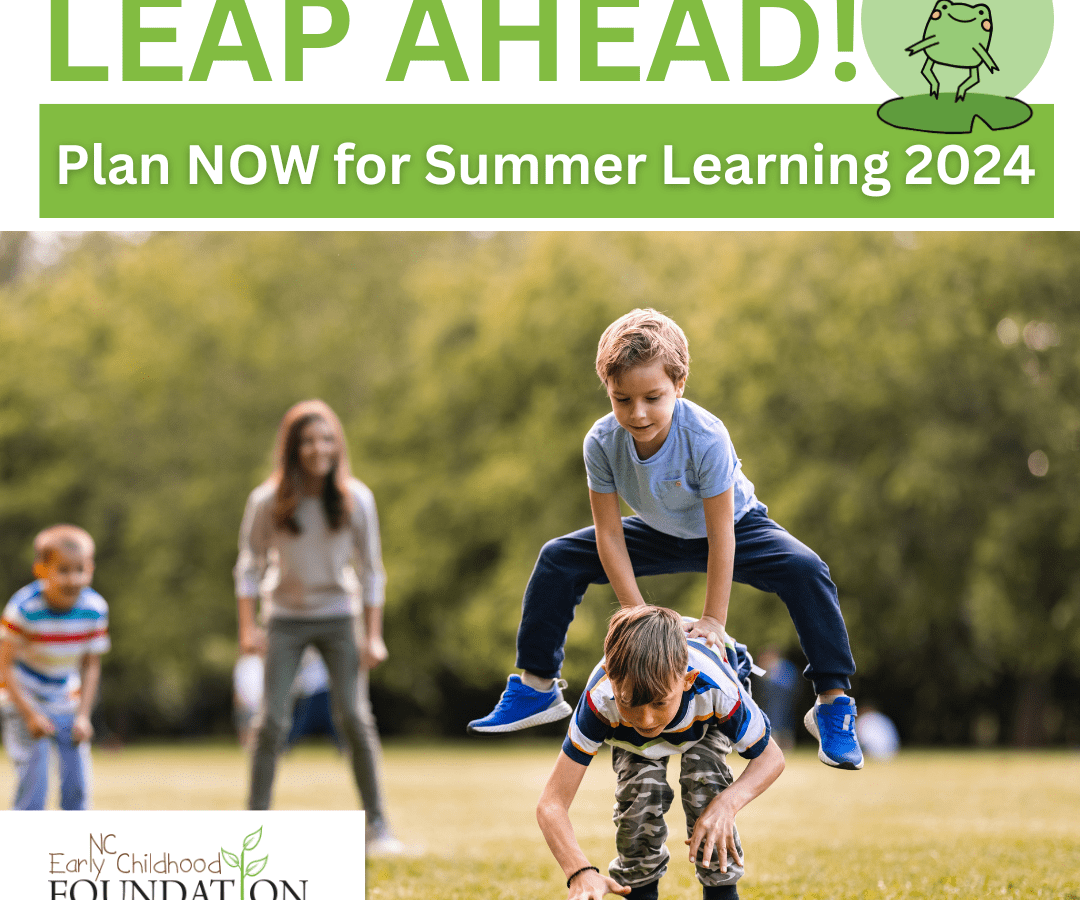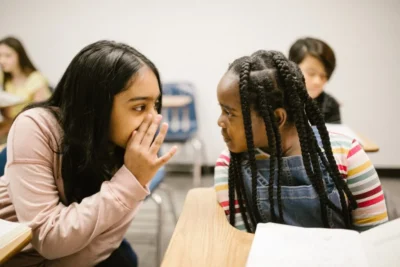
|
|
Hop into summer with the North Carolina Early Childhood Foundation (NCECF) and gear up to make summer reading a “ribbiting” adventure for our little learners! Download the 2024 Toolkit for Summer Learning to help you prepare for the upcoming season and Summer Learning Week — July 15-19, 2024.
The Toolkit, crafted with insights from providers and parents, has everything needed to inform and inspire families about the magic of summer learning. Now is the perfect time to implement these resources in your plans for summer programming.
Importance of summer learning
Why all the croaking about summer learning, you ask? Summer learning is important since students can experience learning loss during school breaks and gaps in learning experiences can add up and impact academic achievement over time — such as high school course placement, high school dropout rates and college attendance rates.
Summer program providers are essential for ensuring this message is shared with families and helping students practice their academic skills through everyday activities and play so they start strong when they go back to school.
When we say “summer learning,” we’re not talking about lazy summer school days or boring lessons for tadpoles. Summer learning ensures young minds are engaged to keep growing their love of reading. It’s about diving into academics, health, enrichment, social and emotional learning.
What’s in the Toolkit
The Toolkit includes resources for planning a successful summer with staff members, as well as resources to activate families (available in English and Spanish).
- Summer program staff presentation & talking points: This is a 10-minute presentation to give staff an overview of reading proficiency, a child’s early years, and the importance of summer learning.
- Summer action plan & template: Use this organizer to create an Action Plan for the 12 weeks of summer. Check out the sample action plan and the blank template for your team to create a plan together.
- Easy sharing with families: Share the Linktree and a QR code with families to access digital resources easily.
- Newsletter articles: Three posts to share with families
- Social media posts: Weekly posts with posting schedule and captions
- Text messages: Weekly messages with posting schedule
- Summer Learning Week stickers: Template for stickers to celebrate Summer Learning Week
- Handouts: Two handouts to share with families
Sign up for the EdWeekly, a Friday roundup of the most important education news of the week.
The Campaign for Grade-Level Reading
This annual Summer Learning Toolkit was created in collaboration between NCECF and the NC Campaign for Grade-Level Reading. Since 2015, the North Carolina Early Childhood Foundation has led the Campaign for Grade-Level Reading in North Carolina. This national initiative brings together communities nationwide to ensure that more children from low-income families succeed in school and beyond. It’s a joint effort by foundations, nonprofits, businesses, and government agencies to support children’s readiness for school, summer learning, and regular school attendance.
In North Carolina, our goal is to build diverse and inclusive communities where young readers thrive from birth through third grade, setting them up for future success. Currently, 13 community groups are part of our state’s Campaign.
We’ve worked closely with Book Harvest to involve parents more deeply in their children’s education. Parents helped create materials and suggested ways to reach out to other families in their community to support summer learning and we developed our Summer Learning Toolkit from this collaboration. Our 2024 toolkit is now ready to be shared across communities to promote summer reading and learning.
Recommended reading


